
by NAMI Ohio | Oct 18, 2021 | News & Updates, Stories of Inspiration
Lisa Marie Griffin’s life story is a rollercoaster of ups and downs, highs and lows, drugs and sobriety, jail and freedom.
But two points stand out in her memories: flies on a jail window sill and her mother’s fur coat. More on those later.
Lisa Marie (like Elvis’s daughter, she points out introducing herself) is a firecracker of a mental health advocate, survivor, and ex-felon who earlier this year won the Person with Lived Experience Award from the Ohio Crisis Intervention Team statewide program. The nomination called her “dedicated and passionate advocate,” with a “phenomenal presence” and “a story as real as it gets.”
The award is the NAMI Ohio office in Columbus so people can see it, she said.
“I’m still a work in progress,” Lisa Marie said. “I’m a big girl with a big mouth. I used to be a police officer’s worst nightmare. When they came on a call about me, they pulled out the shotgun.”
But she credits supporters at the NAMI’s in Cleveland and Akron with saving her life and transforming her from “attitude to gratitude.”
Lisa Marie, who recently turned 60, was born and currently lives in Akron. She and her late mother, Ruby Rebecca Lee, fought constantly as she grew up. She never knew her birth father; step-fathers made matters worse.
The end result was Ruby shipped her rebellious teenage daughter off to live with a relative in Houston, TX. Lisa Marie graduated from high school there, but immediately began getting in serious trouble with the law when she returned to Ohio to live in Cleveland.
Her lengthy criminal record includes assault, fleeing police in high-speed chases, robbery, theft, a smash-and-grab at a jewelry store, drug abuse, and so many other charges that looking back, Lisa Marie said, “I don’t know who that person was.” She was shot twice, knifed more times than she remembers, and served two sentences in the Ohio Reformatory for Women at Marysville.
She’d been in and out of jail, prison, community corrections facilities, and halfway houses so many times it finally dawned on her: she had spent more than half her life locked up or on probation. “I realized I had been in trouble more than I had been free and that that was a form of slavery. I didn’t want to spend my life looking over my shoulder.”
Lisa Marie was introduced to NAMI and Executive Director Terry Russell in 2003. She trained to be a NAMI peer-to-peer supporter, and eventually did in-service training at the Marysville prison where she had previously been incarcerated.
“NAMI saved my life,” she said.
About those two flies. While involved in chemical dependency class while incarcerated, Lisa Marie was asked to write a list of things she would be grateful for in the future. Spotting two flies on her cell window, she said he would be grateful one day to see flies on the window sill of her own home instead of a prison cell.
She also thinks back to the time she and her mother attended the funeral of a relative. Having finally made up with her mother after 41 years of bitter fighting, Lisa Marie broke down during the funeral, buried her face in her mother’s fur coat, and cried.
“All along I thought she was the knucklehead, and it turned it was me.”
Now, Lisa Marie shares all this and more in speaking to law enforcement about how to deal with “knuckleheads,” as she says.
“You can take your life back,” she says. “People still need us.”

by NAMI Ohio | Dec 15, 2020 | Blog, Stories of Inspiration
Written by: Alan Johnson
It was after 3 a.m. when Donna Heck got the call she had been dreading for years, but somehow expecting.
Good news rarely comes in the middle of the night.
“This is it,” she said solemnly to her husband, Jeff.
Something bad had happened to Dani Leedy, the caller said. The Hecks soon found out their beautiful, caring 33-year-old daughter had taken her own life. It was Feb. 11, 2019.
For many people, what happened in the wake of such unbearable news would be round after round of sadness and grieving for a lost loved one. And the Hecks grieved, along with their five other children, grandchildren, family and friends.
But they did something else: they acted.
Drawing upon strength, devotion and resiliency unimaginable to most parents in such a devastating time, the Hecks, within four days of Dani’s death, had created a non-profit organization, 33 Forever, complete with a domain name (33Forever.life) and tax identification number, set up to help people like Dani and parents like Jeff and Donna to avoid a similar tragedy in their lives. The organization’s goal is “helping people be their best despite fighting the diseases of depression, anxiety and self-worth, including suicidal thoughts.”
Jeff and Donna, who live in the Mansfield area, are a big part of the National Alliance on Mental Illness of Ohio. Donna is a member of the NAMI Ohio Board of Directors and Jeff is newly elected to the board of the Ohio Suicide Prevention Foundation, which operates under the auspices of NAMI Ohio. Both, as well as 33 Forever,are active supporters and financial sponsors of NAMI Richland County as well.
Jeff and Donna are anxious to share their daughter’s story as part of their goal to recast their grief into helping others, something the couple feel Dani, who was a caregiver for others all of her too-short 33 years of life, would appreciate.
Donna vividly remembers telling Sara, another one of her daughters, the news about Dani.
“What do we tell people?” Sara asked. “We have to protect you.”
Donna took her daughter’s hands. “We tell them the truth. If we don’t, we will let suicide win and we can’t do that. We are stronger than that.”
Dani’s Story

Dani was born May 1, 1985, and even as a child would command attention and light up a room, Donna said. Jeff came into her life later when Donna was divorced and they married. Dani was particularly close to Sara Heck, one of Jeff’s daughters who was about a year younger, but the blended family of six children, five girls and a boy, all got along well.
Dani was caring and empathic, even as a child, her mother said. “She wanted to ‘fix’ people. She was always looking for misfits. She spent her life trying to help people.”
While things looked fine on the surface, when Dani was 13, about the time her parents got divorced, she began showing flashes of anger, Donna said. She also began obsessing about her body image, something that would stick with her the rest of her life. About two years later, they got the first of what would be three devastating phone calls: Dani, then 15, had taken an overdose of pills and been rushed to the emergency room.
Like most parents confronted with such a crisis for the first time, Jeff and Donna didn’t know what to do or who to turn to. They credit folks at NAMI Richland County with helping them find resources for their daughter, who they realized at that point was struggling with depression.
After a brief stay in Akron Children’s Hospital, Dani came home to recuperate and eventually returned to high school. Jeff said she “tested the edges” for the next few years, but with counseling and medication, Dani seemed to be getting her life together as she prepared to head to college at Kent State University, where she planned to major in criminal justice.
There was another suicide attempt when she was a junior at Kent State, although her parents didn’t learn about it until later. But after Dani’s third attempt when she was 22, Jeff and Donna stepped in and got their daughter into treatment for 45 days at a facility in Tennessee.
Once again, Dani began piecing her life back together. She got a rewarding but high-pressure job in Florida, began dating someone new, and had plans for the future. But fate had another bad hand to deal to Dani when her boyfriend died suddenly, throwing her back into darkness and depression.
Dani had learned over the years to pull herself back from “dark moments” she experienced from time to time, dipping into her bucket of resiliency, Jeff said. But somehow on Feb. 11, 2019, “This time she couldn’t find her way out of it.”
The Aftermath
Kieyra Thrush, Dani’s best friend in high school and for years after, saw her at Christmas time in 2018, about six weeks before Dani’s death.
“I told her, ‘You just seem like you’re in such a good place right now.’ I had no clue.”
Kieyra, who is a pediatric nurse practitioner and mother of five children, said her friend had “a great personality and a huge heart. She struggled with self-esteem and put other before herself.”
Dani’s death affected how she works with her patients, Kieyra said. “I always asked my patients how they were doing with their mental health because it was my job. Now I ask people because I’m concerned.”
“People that are close to you could be covering up so well,” she said. “Check closer on your family and friends.”
Tony Coder, head of the Ohio Suicide Prevention Foundation, said the Hecks are an inspiration.
“They took the pain and overwhelming sadness that accompanied this tragedy and used that as motivation to help others. They don’t want another family to go through this.”
“Too many times because of stigma people think this is what happens to other families,” Tony said. “But these are the voices that will help others.”
As for Jeff and Donna, they know they sometimes make people very uncomfortable when they talk about Dani’s suicide. But they don’t care.
“This is not a journey we would wish on anybody else,” Donna said.
33 Forever (https://33forever.life/) is growing by leaps and bounds, having raised about $325,000 thus far. The organization is looking into programs to help provide urgent care for people in mental health crisis and after-care for those leaving psychiatric hospitals. Help on a number of mental health topics is available on the website.
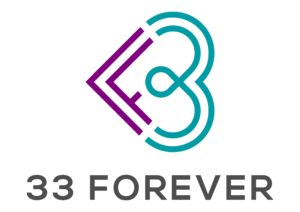
Those in need of immediate help dealing with suicidal thoughts can call the National Suicide Prevention Lifeline, available 24 hours a day at 1-800-273-8255.
A wide variety of resources are available through NAMI Ohio (https://namiohio.org/).
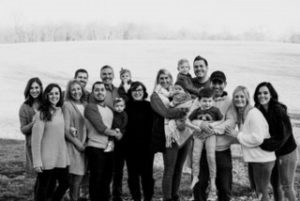
Thank you to Jeff and Donna Heck and their family for sharing their experience.
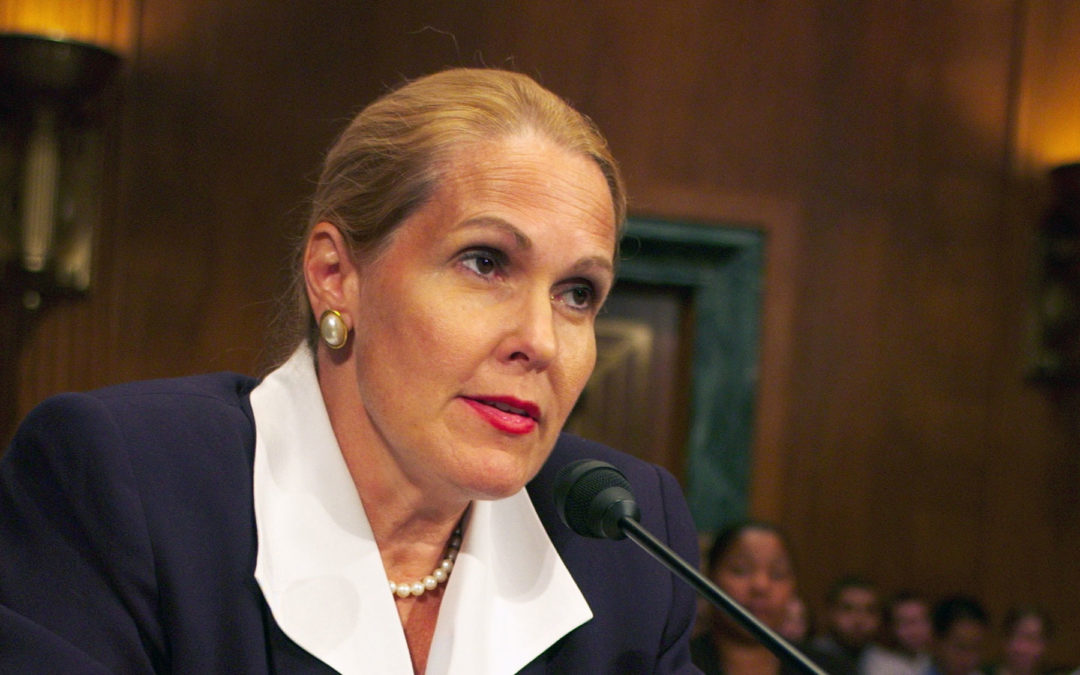
by NAMI Ohio | Nov 2, 2020 | News & Updates, Stories of Inspiration
Mental illness affects 30 percent of all inmates in Ohio jails, triggering a growing public health crisis and avalanche of unnecessary costs to taxpayers.
Stepping Up, a state and national collaborative effort led here by former Ohio Supreme Court Justice Evelyn Lundberg Stratton, is attacking the problem by reducing the number of people with mental illness who recycle through the revolving door of jails, prison and mental health institutions. The National Alliance on Mental Illness Ohio, the leading advocate for the mentally ill and their families, has been a Stepping Up partner with Stratton since the beginning.
The overall goal of Stepping Up is to help criminal offenders get clinical treatment and other services for mental health illnesses so they can “get well, make positive changes life changes, and stay out of jail.” At the same time, treatment in lieu of incarceration can potentially save millions of dollars in unnecessary expense for jails.
Justice Stratton, who served on the Ohio Supreme Court from 1996 to 2012 after starting her judicial career on the Franklin County Court Common Please, has spent 30 years focusing on the problems of mental ill offenders caught up in the criminal justice system.
“I think the best explanation of Stepping Up is that people are often in jail because of their mental illness. Many of these people are sick, they’re not criminals,” Justice Stratton said. “Our mental health care system has never been adequately funded. Jails end up as the de facto mental health system.”
However, jail operators are not mental health professionals, she said, and don’t have the skills, time and resources to adequately help mentally ill patients in their care. That results in many offenders cycling repeatedly through the criminal justice system, without getting help eroding precious resources.
Ohio’s 78 jails serve in a way as psychiatric facilities at a cost of $41.7 million annually. Nationally, 2 million people with serious mental illness are admitted to jails each year, costing taxpayers two to three times as much as other offenders.
The Ohio program is linked to the national Stepping Up program begun in 2015 by the Council of State Government and other entities.
However, Justice Stratton, who is the child of foreign missionaries, became interested in mental illness in the criminal justice system three decades ago. Her first experience, she said, involved a deaf mute offender who came back again and again to her Common Pleas courtroom. She realized then and there that something needed to be done to help people with mental illness better navigate the system.
Eventually, Justice Stratton gave up her seat on the Supreme Court to pursue her goal of improving outcomes for the mentally ill in the criminal justice system.
Delaware County is among several Ohio counties participating in Stepping Up. The sheriff’s office helped establish the first “sober house” in the county to benefit ex-offenders with substance abuse issues in a residential setting, explained Kassie Neff, criminal justice program manager for Sheriff Russell Martin
“Stepping Up has made a huge impact in Delaware County. We have expanded on our already existing programs,” Neff said. Agencies are collaborating and there is a willingness to come together and put differences aside. The county jail is now screening all incoming offenders for both mental health substance abuse issues to help guide them to treatment and programs whenever possible.
One measure of success in Delaware County, Neff said, is a reduced rate of recidivism, which is the rate at which ex-offenders come back to jail on new or modified charges. Offenders in Stepping Up come back to jail at a 30-percent rate compared to the 60-percent recidivism rate for non-participants, she said.
One specific case study in Delaware County showed the financial value of Stepping Up, Justice Stratton and Neff said. A chronic offender who had been cycling through the criminal justice system for eight years cost the county and other agencies $644,357 over the eight years. By comparison, providing housing and mental health services to the same individual would have cost taxpayers an estimated $198,522, producing a net savings of $445,835 in
Best of all, Neff said, she sees offenders improving their lives.
“I work with these people. I know these people. I see them getting better.”
Justice Stratton sees statewide improvements in how the mentally ill are treated in the criminal justice system through the creation of 280 drug and specialized courts and 14,000 officers in law enforcement now trained to handle mental health patients in crisis. There is greater cooperation and collaboration among agencies and important information is being shared, not kept in silos, she said.
Luke Russell, deputy director of NAMI Ohio, said the organization’s mission is to “improve the quality of life, and ensure dignity and respect for person with serious mental illness, and this includes the 30 percent of folks incarcerated in the jail system.”
“NAMI Ohio has been a partner from the beginning, and we believe the growth of this program has and will divert individuals with serious mental illness into more appropriate and less costly treatment options,” Russell said. “We are proud to be on the core team of Stepping Up, and we know the stories of individuals and families that have benefitted from a system open to alternatives and increase treatment options for those with serious mental illness.”
More information about Stepping Up is available online at https://mha.ohio.gov/Schools-and-Communities/Criminal-Justice/Stepping-Up.
![Thank You for Supporting Individuals Living on Ohio ACF’s!]()
by NAMI Ohio | May 19, 2020 | Stories of Inspiration
The National Alliance on Mental Illness of Ohio and the Ohio Adult Care Facilities Association want to thank individual and community donors for their generosity during the COVID-19 pandemic by providing more than $350,000 used to purchase critical supplies for severely mentally disabled Ohioans living in group homes around the state.
Your generosity allowed us to buy thermometers, sanitizer, soap, masks, gloves, toilet paper and other much-needed supplies for thousands of Ohio residents.
You made life better for those individuals and, more importantly, you saved lives.
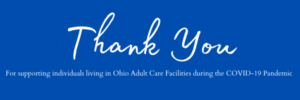
Thank You PDF
![Thank You for Supporting Individuals Living on Ohio ACF’s!]()
by NAMI Ohio | Apr 23, 2020 | Stories of Inspiration
Working with Youth During a Pandemic
The YouthMOVE Ohio State Council Continues to Work and Support Youth During Covid-19 Crisis
YouthMOVE (YM) leaders across Ohio have worked to create ways to support each other and their communities during the Shelter in Place order. YouthMOVE had to cancel all in person meetings and trainings scheduled this spring due to the COVID-19 crisis, however, instead of suspending their work the youth council created a plan to move forward virtually.
YouthMOVE is a program under NAMI Ohio and members include youth and young adults, ages 14-26, who have lived experience in multiple systems including: Behavioral Health, Foster Care, Homelessness, Developmental Disabilities, Juvenile Justice, and Education. These youth and young adults represent 19 rural and urban counties across Ohio. Council members provide feedback and guidance to state agencies concerning youth issues and programs across systems and work with NAMI Ohio to advocate for the needs of children and families. In addition, these council members work to create local projects in their own communities to help promote mental wellness.
In the time of COVID-19, YM members recognized how difficult it is to keep safe and healthy during Shelter in Place. They are concerned about their communities and about their peers. In order to support each other and continue their work, they have developed a process of checking in with each other and with their peers every week. This includes increasing our contact through weekly zoom meetings, individual calls, emails, and group messaging. They did not let COVID prevent them from holding their weekly scheduled state meeting and successfully held an all-day virtual meeting with 21 –participants from 14 counties around Ohio. The meeting was structured through a series of full council calls and small “break out” group calls to discuss three topics: how to help youth during Shelter in Place, how to help promote expanding youth peer support via online resources and how to expand our social media and increase communication among our peers.
This resulted in a decision to continue to meet virtually and check in with each other several ways a week. An additional goal was to identify ways to reduce social isolation among YM members and other youth. It is significant to note that the need for Youth Peer Support was expressed by all participants. Youth believe this should be the priority among partners and state agencies. With more youth at home and isolated, they moved their focus to researching online programs that offer peer services. Council members are exploring existing sites as well as the services provided. The goal is to provide input to state agencies regarding ways to help reach out to youth who are in need of services. This focus on peer support is ongoing primary issue for the council. The council has been working with state agencies to find best practices and evidence based programs that can be implement in Ohio. The youth council is committed to working harder to advocate for a youth peer support training and certification to provide critical services to youth. Of special concern is those who are more isolated during this pandemic.
Finally, youth council members believe and are grateful that Governor DeWine is making decisions to keep them safe at home. In addition, they feel their partners at the State and NAMI Ohio are genuinely concerned and supportive of creating the best programs and services to youth and their families. They concluded that, with the continued commitment and support of NAMI Ohio, they will be able to maintain their voice and make Ohio stronger for youth in crisis.
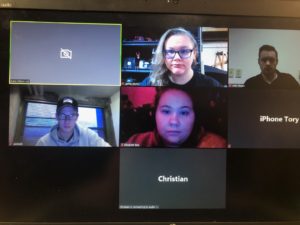
Photo of YouthMOVE Ohio Members on a Zoom Video Call
![Thank You for Supporting Individuals Living on Ohio ACF’s!]()
by NAMI Ohio | Apr 15, 2020 | Stories of Inspiration
By: Alan Johnson, NAMI Ohio
Her world fell apart the first week Shabbo Ferguson couldn’t go to school.
The 13-year-old girl from Dublin in Franklin County, the adopted daughter of Celeste and Jimmy Ferguson, has post-traumatic stress disorder and developmental trauma and functions more like a young child than a teenager. She desperately needs structured time in school to calm her and give her unstressed time away from family.
But the onset of the COVID-19 virus closed Ohio schools, including Shabbo’s neighborhood school in Dublin, and deprived her of the chance to recharge her batteries, Celeste Ferguson said.
“In the first week, we saw her anxiety,” she said. “Even with medication, she was hearing voices throughout the day and night telling her to hurt herself and members of her family. ‘I should be dead,’ she said.” At one point, she tried to jump out of the car on the highway.
Meanwhile, another COVID-related story was unfolding in Urbana in Champaign County where Kimberly Foster struggled to deal with her step-son, Tyler, who is 10. Tyler has a range of serious behavioral health issues, including Attention Deficit Hyperactivity Disorder, and a tendency to rage and become violent, often aimed at his own family.
Like Shabbo, Tyler can’t go to school because of the virus quarantine. The tension in the household, which includes three other children aged nine, four and three months, is sometimes overwhelming because of Tyler’s obsessive behavior issues.
“Each day gets a little bit worse,” Foster said. “All his doctors agreed that the level of treatment he needs is to be institutionalized. Right now, with Tyler, it’s like I’m here with 20 kids. I feel like I’m about to break down.”
The National Alliance on Mental Illness of Ohio (NAMI Ohio) is working with the Ferguson and Foster families and many others to help them “weather the storm” on the home front because of the COVID-19 crisis. NAMI has a statewide network of Parent Peer Supporters working in the Parent Advocacy Connection (PAC) Program. The NAMI peer parent supporters provide no-cost help to parents with high-risk kids to assist them navigate the troubled waters of daily life and to deal with a complicated mental health system.
The peer parents know the system because they’ve been there themselves in dealing with their own children. They’ve walked the path ahead so they know what to expect.
But the COVID-19 pandemic has created a situation like no one has lived through, said Jody Demo-Hodgins, Director of the NAMI Ohio Children’s Division. “Adults are worried and stressed about everything – safety, health, income to name a few. Adults are able to educate themselves and use coping skills to get through each day. But for kids, it’s more challenging. Their lives have been upended. There is no school, daycare and friends. The routine they counted on from Monday to Friday is vastly different. Their level of physical activity is infinitely different than it was on March 1.”
Demo-Hodgins said a good first step is to limit, as best you can, talk around children about your worries tied to money and health and to limit their exposure to news. “Let them know you are trying to keep them safe. Talk to them about why washing their hands is important and make a game out of it with a song or a timer. Try to keep a routine. This includes a bedtime that is similar to the one when school is in session. Three meals a day with a limit of snacks. Play outside when possible and connect by phone or FaceTime with their friends and family so they can see for themselves that those they care about are ok. It is also important to answer questions in a simple, honest way that provides information and facts but not fear.”
“Remind your child that everyone gets scared and anxious at times,” Demo-Hodgins added. “Let them know you love and care about them. We as adults can take care of our emotional health. That might be one of the best things we can do for any child we love and care about.”
Celeste Ferguson, who teaches immigrant children at a Columbus-area private school, and her husband adopted Shabbo from India two years ago. While they don’t know the youngster’s complete history, they are pretty certain she was traumatized by domestic abuse and abandonment in her childhood. The Fergusons adopted two of Shabbo’s sisters and another child from Ethiopia.
Fearing Shabbo would harm herself or her family, the Fergusons took her to Nationwide Children’s Hospital Behavioral Health Services where she was admitted about four weeks ago. She has since been transferred to a special-needs residential facility In Wooster, OH. Because of Gov. Mike DeWine’s stay-home order, the Fergusons can only connect with their daughter by phone or video calls.
Ferguson said working with Courtney Earliwine, a NAMI Ohio peer support parent and regional coordinator, was a lifesaver. “Early on in our journey we partnered with Courtney. She has walked through the whole thing with us. She know the ins and outs of the system. I definitely could not have done it without her.”
Kimberly Foster worked with Nicole Gerty, another NAMI peer parent and regional coordinator. “She helps out as much as she can but just about everything’s on hold right now.” She said the three days Tyler spent away from home in a juvenile detention facility were the most restful she’s had in months.
“Just remember what you’re here for,” Foster said. “You have a purpose. You have to fight through the pain and headache to see there’s light at the end of the tunnel.”
To reach the PAC Program, please contact Dana Berryman, State Coordinator at (614) 580-0726 or dana@namiohio.org.
Suggestions for homebound parents with high-risk children:
- Respond to their reactions in a supportive manner.
- Build in structure whenever possible but be mindful when they show signs of needing a break to be silly or to just rest.
- Answer their questions in an honest, clear way. When you don’t know an answer, be honest about that and look the question up if possible. The Ohio Department of Health has done an amazing job of keeping clear, accurate information posted on their web site www.coronavirus.ohio.gov
- Find ways to build in opportunities for physical activity a few times a day. Go for a walk. Create a relay in your yard or house. Play hide and seek. Do jumping jacks or sit ups. Dance. Ask them for ideas.
- Find ways for them to help. It might be doing simple chores or helping plan and cook meals. Let them know this is a Family Team and they play an important role as one of the members of the team.
- Model positive behavior. If you need to shed some tears do it out of their sight especially if they are under 10. If they see you break down, be honest about your stress but let them know you are committed to carrying on.
- Keep track of their sleep and appetite. Encourage them to be in touch with friends virtually.
NAMI Ohio wants to thank the courageous parents included in this article for allowing us to share their story. The Parent Advocacy Connection Program is available throughout Ohio to help parents get through this pandemic.
NAMI Ohio also pledges to advocate for the supportive services that these children and families desperately need.










